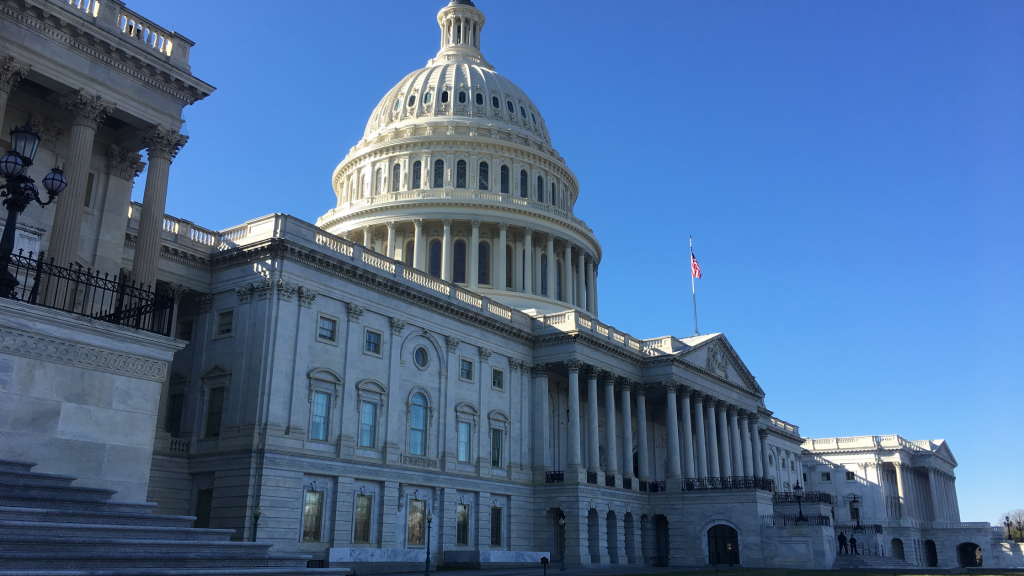What’s in the $900 Billion Coronavirus Relief Package?

“Americans can always be trusted to do the right thing, once all other possibilities have been exhausted.”
Winston Churchill
As we close 2020, Congress has finally agreed on a COVID-19 relief package. To quote Winston Churchill, “Americans can always be trusted to do the right thing, once all other possibilities have been exhausted.” With a $2.3 trillion combined package, $1.4 trillion in continuing appropriations plus $900 billion in COVID-19 relief as well as countless year-end tax extenders, Congress had one of the most productive lame duck sessions in recent memory.
So what’s in this 5,593 page bill (we’ve bookmarked areas that may be of interest to you here) and what does it mean for you and potentially your organization or business?
COVID-19 Relief Checks
The legislation provides for a 2nd round of advanced tax rebates similar to those from the CARES Act earlier in 2020 with the same income eligibility (slightly quicker phase-out). Unlike the 1st round, these checks will be $600 per individual and qualified child (adult dependents such as college students or those over age 17 will not qualify) with no cap on family size.
Payroll Tax Deferral Payment Extension
For those individuals who took advantage of the ability to defer payroll taxes (e.g., FICA), the repayment deadline is extended from April 1, 2021 to December 31, 2021.
Paycheck Protection Program (“PPP”)
The updated PPP is similar to that of the CARES Act but more targeted to ensure it goes to those small businesses most impacted by COVID-19. Under this legislation, a business must show that they have seen at least a 25% revenue reduction during a quarter in 2020 compared to the comparable quarter in 2019. Additionally, the maximum employer size is reduced to 300 employees and the maximum loan amount is reduced to $2 million. While most businesses will retain the 2.5 months of covered expenses for their loan amount, restaurants will be eligible for up to 3.5 months of such covered expenses. Beyond that, this legislation has expanded the list of covered expenses to include protective personal equipment (“PPE”) and mandates that forgiveness application for loans of under $150,000 shall not exceed one page.
PPP Loan Forgiveness Tax Treatment and Deductibility
While the original CARES Act stated that any loan forgiveness would not be taxable, it did not address the issue of tax deduction for any covered expenses incurred in relation to that forgiven amount. In keeping with longstanding IRS positions, the IRS stated that those covered expenses would not be tax deductible which had the effect of making such loan forgiveness fully taxable which was not the intent of Congress. Therefore, this legislation explicitly states “no deduction shall be denied, no tax attribute shall be reduced, and no basis increase shall be denied, by reason of the exclusion from gross income provided” which has the effect of allowing those covered expenses to be fully deductible regardless of whether or not the PPP loan is forgiven.
Rental Assistance
This legislation extends the eviction moratorium to January 31, 2021 and further provides $25 billion in assistance for renters (the methodology for distribution of these funds to renters is uncertain).
Transit Assistance
The legislation provides assistance for airlines and their contractors, public transit systems, airports, highways and Amtrak.
COVID-19 Assistance Extension
For those State & Local entities that have unspent COVID-19 funds from the CARES Act, the deadline for such spending has been extended to December 31, 2021.
What’s not in the legislation?
State & Local Funding
While the initial compromise legislation sought to provide for $160 billion in State & Local funding relief, this did not make the final product. We expect this issue to arise again in early-mid 2021 as President-Elect Biden seeks additional relief and/or stimulus funds.
Liability Protections
While Senate Republicans sought liability relief related to COVID-19 lawsuits, that provision did not make the final legislation. We expect this issue will arise again if/when President-Elect Biden seeks additional relief and/or stimulus funds.
Summary
While many have stated this legislation is too late and too little, it is the 2nd biggest recovery act in US history, trailing only the CARES Act which was passed earlier in 2020, for a combined total of more than $3 trillion in support. With the recent release of the Pfizer and Moderna COVID-19 vaccine as well as multiple other vaccine candidates in the pipeline, the hope is that these programs will provide support until vaccine distribution is largely available during 2021.
About Parker Elmore, ASA, MAAA, EA, FCA
Parker, President and CEO of Odyssey Advisors, has over 30 years of industry experience developing and implementing solutions to the complex financial issues faced by small and mid-sized employers. Parker’s personal philosophy is to listen and customize solutions for your individual needs.
Parker founded Primoris Benefit Advisors, Inc. (now known as Odyssey Advisors) in 1998. With a Bachelor of Science in Mathematics and many industry certifications, he is a member of the American Academy of Actuaries, an Associate in the Society of Actuaries, a Fellow in the Conference of Consulting Actuaries and is enrolled by the Joint Board for the Enrollment of Actuaries.
What’s in the $900 Billion Coronavirus Relief Bill? Take a look here.
Categories:
Share